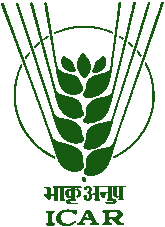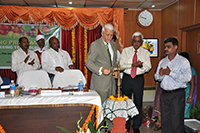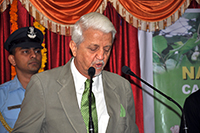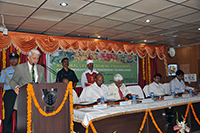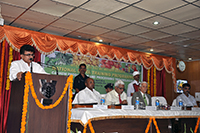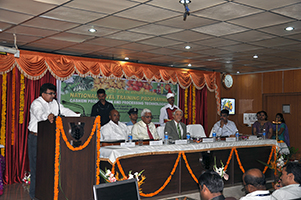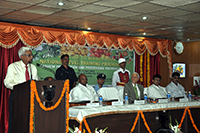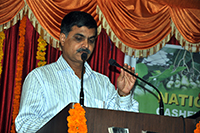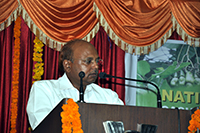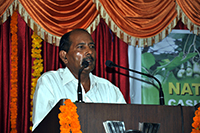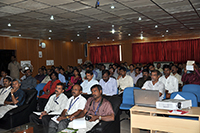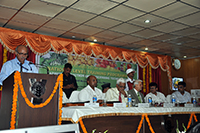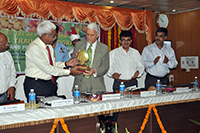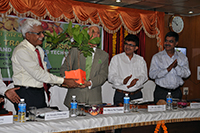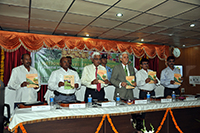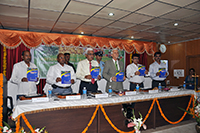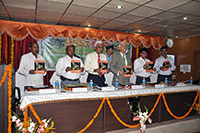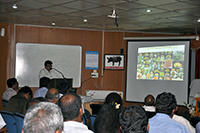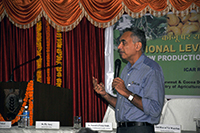National Level Training Programme on Cashew Production and Processing Technologies
National Level Training Programme on Cashew Production and Processing Technologies
“National Level Training Programme on Cashew Production and Processing Technologies” was jointly organized by ICAR Research Complex for Goa in collaboration with Directorate of Cashewnut and Cocoa Development, Kochi, Kerala during 22-24, April 2014. The programme was inaugurated by Shri Bharat Vir Wanchoo, the Honourable Governor of Goa. In his inaugural address, the Honourable Governor of Goa emphasized the role of agriculture in food security. He appreciated the efforts of agricultural scientists for their contribution in increasing the food grain production. He mentioned that cashew is an important horticultural crop and it contributes to the national income by way of exports. Though the crop was introduced in Goa during 10th Century by Portuguese, the commercial cultivation started only in 20th century. He shared his concerns on the low yields of cashew and called all the stakeholders to take appropriate steps to increase the yield. He stressed on the importance of scientific knowledge in agriculture and highlighted the need for replacement of senile cashew plantation with new, improved varieties for better yield, need for cooperatives in marketing to increase the income and ways to utilize the cashew apple for additional income.
Dr S K Malhotra, Horticulture Commissioner, Government of India in his presidential address highlighted the availability of >40 varieties of cashews for different regions of India. He appealed to the participants to advice farmers on use of appropriate varieties for better production. He emphasized the demand of the farmers for new, innovative and eco-friendly technologies including biotechnology to solve different issues.
Dr. Narendra Pratap Singh, Director of ICAR institute in his welcome address briefed about the institute and the research activities of the centre. He highlighted the importance of horticulture especially the cashew production in the State. He added that because of poor management practices, the farmers of Goa are not earning the proper income. He described about the Tribal sub plan programme of ICAR RC for Goa where the cashew farmers earned double the income due to proper application of production technologies.
Dr. P. L. Saroj, Director, Directorate of Cashew Research, Puttur further added that cashew is still considered as a neglected crop and less man power is working in cashew research which needs to be improved considering the economic importance of the crop.
Shri P. Tufani, Director, Directorate of Agriculture, Government of Goa informed that the low productivity of cashew in Goa is mainly because of non-availability of labours and non-application of fertilizers. He also informed the gathering about the efforts of the agricultural department to promote organic cashew production.
Shri Hubballi, Director, DCCD, Kochi told about the import and export of cashew. He pointed out that 15 states of India are involved in cashew cultivation with about 7.25 MT production. He said that National level training programmes will play vital role to improve the domestic production and overcome the problem of importing raw nuts for processing in India.
In this programme, 50 officers from different departments, corporations, Universities and NGOs representing the cashew growing states across the country participated to get trained about the latest production and processing technologies. The training programme also involves visits to cashew nut processing units, cashew feni extracting units and Frontline Technology plots in Goa.
Dr. A.R. Desai, Sr. Scientist, ICAR Complex proposed the vote of thanks.
